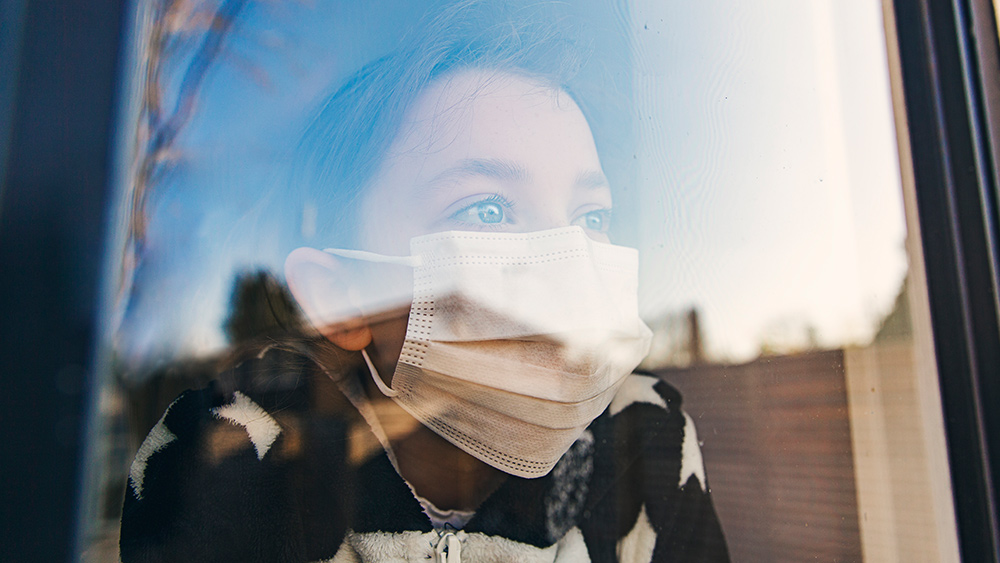Aloe vera: a holistic staple throughout history
02/16/2022 / By Olivia Cook

For thousands of years, aloe vera has been used to support health and wellness – and for very good reasons. Whether it’s used as a topical gel or ingested, aloe vera is highly regarded as one of the most powerful plants to naturally help the human body.
Recent studies have explored how aloe vera made a massive impact on societies of the past. During the time of the pharaohs, aloe vera was known as the “Plant of immortality”and the “Lily of the Desert” because it is a beautiful, miraculous plant that lives and blooms even without soil and thrives in the most desolate conditions.
Also called the “Wand of Heaven,” the aloe vera plant has triangular, fleshy leaves with serrated edges, yellow tubular flowers and fruits that contain numerous seeds.
Each smooth and rubbery leaf is composed of three layers: an inner clear gel that contains 99 percent water and an assortment of glucomannans, amino acids, lipids, sterols and vitamins; a middle layer of latex that contains anthraquinones and glycosides; and a thick outer layer of 15-20 cells called the rind, which has a protective function and synthesizes carbohydrates and proteins.
Aloe vera’s healing properties
According to a study published in the Indian Journal of Dermatology, aloe vera contains at least 75 potentially active constituents, such as vitamins A (beta-carotene), C, E and B12, folic acid, choline, calcium, chromium, copper, selenium, magnesium, manganese, potassium, sodium, zinc, enzymes, lignin, saponins and salicylic acid.
Aloe vera also contains monosaccharides (glucose and fructose) and polysaccharides (glucomannans/polymannose), anthraquinones (phenolic compounds), fatty acids that provide plant steroids (cholesterol, campesterol, beta-sisosterol and lupeol), hormones (auxins and gibberellins) and nonessential and essential amino acids.

These beneficial components allow aloe vera to:
Support healthy skin and hair
A study published in the journal Molecules cites numerous reasons why aloe vera has gained significant popularity in dermatology. The study suggests that aloe vera helps with hydration, protects against ultraviolet (UV) exposure, relieves burns and prevents skin aging.
The antioxidant properties of aloe vera are known to combat free radicals which harm the skin by causing oxidative damage. Aloe vera also induces fibroblasts to produce collagen and elastin fibers, making the skin more elastic and less wrinkled.
Its moisturizing effects have also been studied for the treatment of dry skin. Aloe vera has been found to improve skin integrity, decrease the appearance of fine wrinkles and alleviate erythema, a type of skin rash caused by injured or inflamed blood capillaries. (Related:Aloe vera: The miraculous natural healer.)
A study published in the Journal of Dermatological Treatment reported that aloe vera is an effective treatment for seborrheic dermatitis, a common inflammatory skin disorder. A comparison of symptom scores before and after treatment of 44 adult patients revealed a significant decrease in scaliness, pruritus and the number of sites involved in seborrheic dermatitis.
Aloe vera contains powerful antioxidants like vitamins A, C and E, which contribute to cell turnover that promotes healthy cell growth and shiny hair. Aloe vera also has vitamin B12 and folic acid that help keep your hair from falling out.
Support a healthy digestive system
Aloe vera contains many natural enzymes that facilitate the breakdown of sugars and fats and promote a healthy digestive system. According to the book titled “Healing Foods,” aloe vera also helps balance intestinal flora.
People who experience periodic constipation may use aloe vera juice as a natural laxative. The outer portion of the plant contains compounds called anthraquinones, which stimulate bowel movement and help loosen up the stool to ease its passage. (Related: Truly a superfood: Aloe vera treats constipation.)
A clinical study sponsored by the National Institute of Medical Sciences and Nutrition also found that aloe vera gel can help patients with mild ulcerative colitis, which is characterized by chronic ulceration of the colon.
Support a healthy immune system
According to the World Health Organization (WHO), aloe vera is the most bioactive plant among all 420 known aloe species. The phytochemical constituents of aloe vera leaf include alkaloids, flavonoids, saponin, phenols, glycosides and tannins.
A study published in the Journal of Alternative and Complementary Medicine suggests that consumption of aloe vera may be beneficial to patients with HIV-AIDS in the tropics, given its availability and inexpensiveness compared to antiretroviral agents, which are largely imported.
Aloe vera contains antiseptic agents that can reduce the viability of fungi, bacteria and viruses. For instance, the acemannan in aloe vera can act synergistically with azidothymidine (a drug used to delay the development of AIDS) and acyclovir (an antiviral medicine) to block the replication of the herpes and AIDS virus. (Related: Aloe vera helps reverse cancer and AIDS.)
Acemannan from aloe vera gel has been approved by the U.S. Food and Drug Authority (FDA) for the treatment of AIDS in humans.
Exert anticancer effects
Aloe vera juice supports the body’s ability to heal itself from cancer and also from the damage caused by radiation and chemotherapy. According to a study published in the Journal of Clinical and Translational Research, the leaves of the aloe vera plant contain a compound called aloe-emodin, an anthraquinone that has the ability to inhibit the growth of malignant cancer cells.
Help lower blood sugar levels
The phytosterols in aloe vera have shown anti-diabetic effects in animal studies. Certain polysaccharides in aloe vera have also been found to increase insulin production and exhibit hypoglycemic properties. In addition, aloe vera contains multiple enzymes that help break down sugar and fat.
According to a study published in Phytomedicine: International Journal of Phytotherapy and Phytopharmacy, consuming two tablespoons of aloe vera juice once a day can help lower blood sugar levels. These findings are supported by another study published in Phytotherapy Research that used aloe vera pulp extract.
Support oral health
Studies on the use various dentifrices (tooth powder, toothpaste, gels, dental creams and dental foams) that contain aloe vera gel have reported promising results.
A systemic review of 15 studies published in the Journal of Pharmaceutical Science and Research reported the clinical effectiveness of aloe vera in the management of oral mucosal diseases, such as oral lichen planus, oral submucous fibrosis, radiation-induced mucositis, burning mouth syndrome, candida associated with denture stomatitis, xerostomia (dry mouth) and recurrent aphthous stomatitis or ulcers.
If you want to experience the healing benefits of aloe vera, give this potent medicinal plant a try.
More related stories:
Emergency medicine: 9 healing herbs to grow at home before SHTF.
Prevent diabetes-induced nephropathy with aloe vera.
Truly a superfood: Aloe vera treats constipation.
Watch the video below about the benefits of aloe vera.
This video is from the Holistic Herbalist channel on Brighteon.com.
Sources include:
Submit a correction >>
Tagged Under:
aloe vera, alternative medicine, anti-diabetes, anticancer, antioxidant, antiviral, Cosmetics, digestive health, food is medicine, functional food, hair care, healing, herbal medicine, Herbs, natural medicine, phytonutrients, plant medicine, remedies, skin care
This article may contain statements that reflect the opinion of the author





















